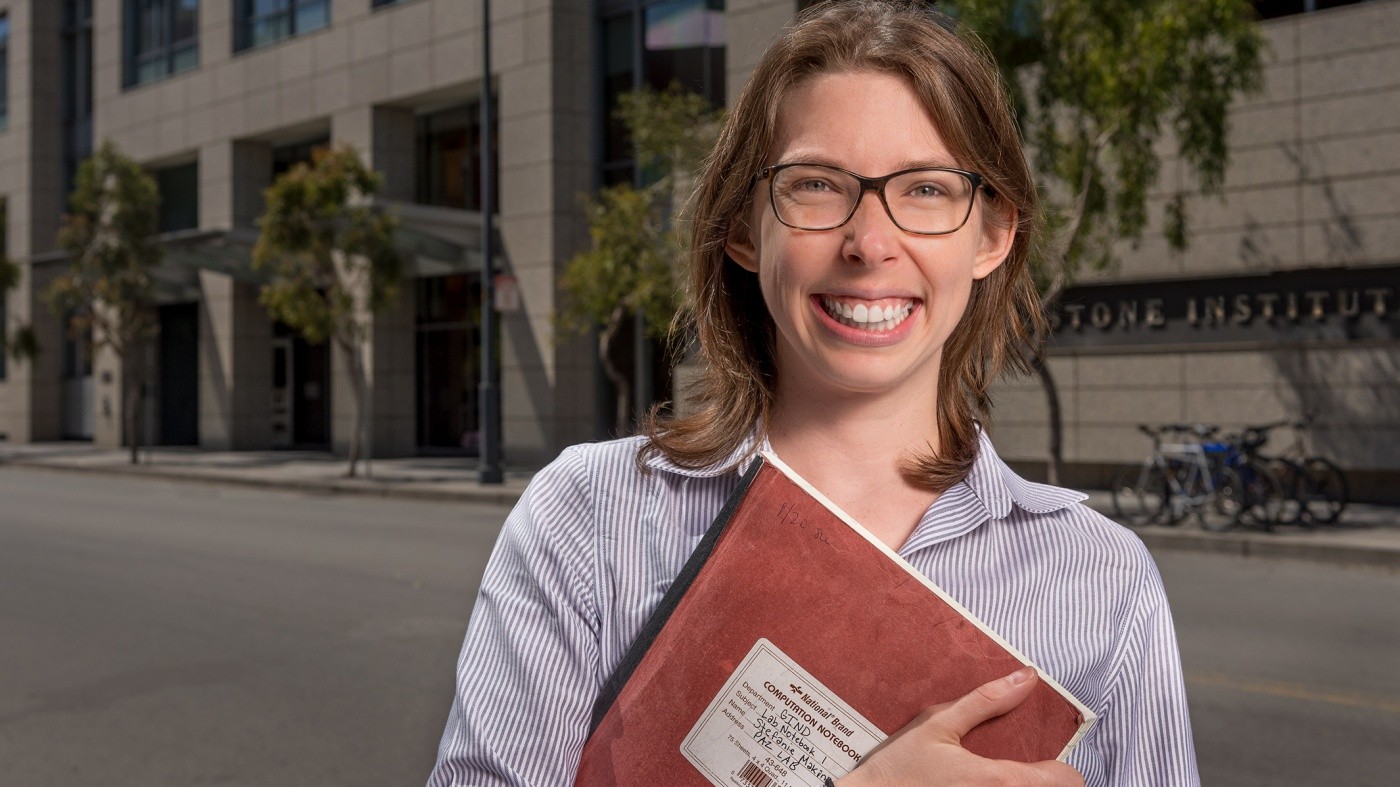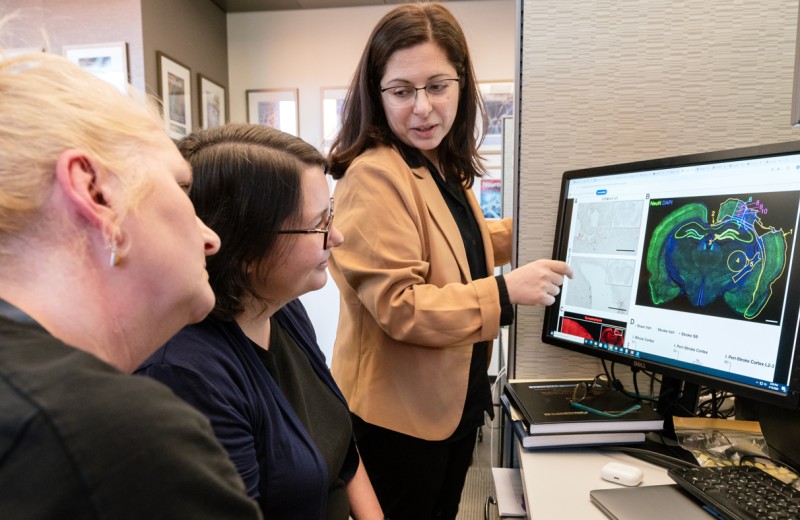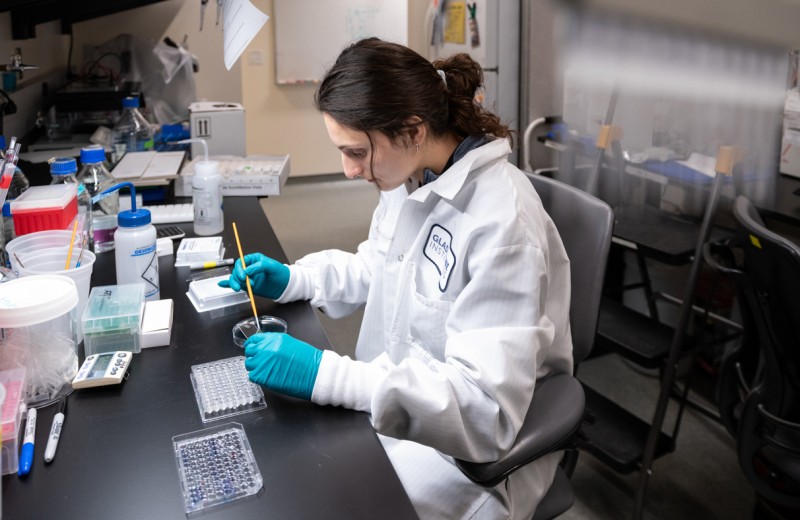Gladstone NOW: The Campaign Join Us on the Journey✕

Stefanie Ritter Makinson, PhD, a postdoctoral scholar working in the laboratory of Jeanne Paz, PhD, received a highly competitive joint fellowship from the American Epilepsy Society and the Dravet Syndrome Foundation. [Photo: Chris Goodfellow, Gladstone Institutes]
Stefanie Ritter Makinson, PhD, a postdoctoral scholar working in the laboratory of Jeanne Paz, PhD, at the Gladstone Institutes, received a prestigious and highly competitive joint fellowship from the American Epilepsy Society and the Dravet Syndrome Foundation. This early career award will support her research on how the thalamus—a part of the brain that controls sensory processing, sleep, and attention—contributes to Dravet syndrome.
“I am honored for the support from the American Epilepsy Society and the Dravet Syndrome Foundation,” shared Makinson. “With this fellowship, I hope to learn more about what causes seizures in Dravet syndrome and how we might prevent or treat them.”
Dravet syndrome is a rare and devastating form of epilepsy that begins in infancy and has a high incidence of sudden death. There is no cure. Patients experience frequent seizures, delays in their development, and an array of other health issues, including sleeping difficulties, challenges with growth and nutrition, and chronic infections.
In most patients, Dravet syndrome is caused by a mutation in the SCN1A gene. SCN1A helps control electrical signals in inhibitory brain cells, and it is highly expressed in the thalamus. Researchers, including Makinson, recently learned that the thalamus is abnormal in mouse models of Dravet syndrome. Makinson is now trying to discern exactly how this area is involved in seizures related to the disease.
In preliminary research, Makinson interrupted non-convulsive seizures in a mouse model of Dravet syndrome by changing brain activity in the thalamus with optogenetics. This tool uses light to control brain activity by turning light-sensitive proteins in the brain on and off. With this tool, and the funding from her fellowship award, Makinson will try to understand how the thalamus contributes to Dravet syndrome and potentially develop better treatments for symptoms of the disease.
Makinson is mentored by Paz, an assistant investigator at Gladstone and an assistant professor at the University of California, San Francisco (UCSF), and Dan Lowenstein, MD, a professor and vice chair of the Department of Neurology at UCSF and director of the UCSF Epilepsy Center. The combination of their expertise in both the basic science and clinical aspects of epilepsy strengthen their approach to solving some of the mysteries in Dravet syndrome.
“I am so proud of Stefanie, and I am excited about the possibility that her hard work will significantly contribute to what we know about seizures in Dravet syndrome,” said Paz. “Her research has the potential to help us find new ways to treat these intractable seizures, improving the lives of many people who suffer from this devastating disease.”
Inside the Brain: Tackling Neurological Disease at Its Roots
Inside the Brain: Tackling Neurological Disease at Its Roots
For World Brain Day, discover some of Gladstone’s latest breakthroughs in neurological research.
Gladstone Experts Research (Publication) Alzheimer’s Disease COVID-19 Parkinson’s Disease Neurological Disease Akassoglou Lab Corces Lab Huang Lab Mucke LabStem Cell Therapy Jumpstarts Brain Recovery After Stroke
Stem Cell Therapy Jumpstarts Brain Recovery After Stroke
Gladstone scientists showed that modified stem cells can improve brain activity, even when administered more than a month after a stroke.
News Release Research (Publication) Neurological Disease Paz LabGladstone Grad Student Shines on International Neuroscience Stage
Gladstone Grad Student Shines on International Neuroscience Stage
In early 2024, Deanna Necula co-chaired a prestigious Gordon Research Seminar in Ventura, California
Postdoctoral and Graduate Student Education and Research Development Affairs Graduate Students and Postdocs Neurological Disease Paz Lab



